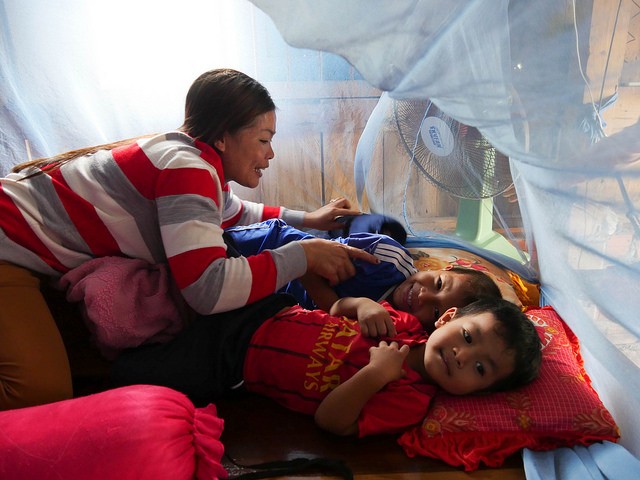Asia Regional
- History
- Our Work
- Lower Mekong Initiative (LMI)
- Newsroom
- Reports and Publications
- Transforming Lives
- Careers
- Partnership Opportunities
- Business Opportunities

Background
Despite many public health advancements in the region, 65 million people in Southeast Asia are at risk of malaria infection. An estimated 260,000 people are infected with malaria each year in the Greater Mekong Sub-region, but the true number is likely much higher because of poor detection and reporting in rural areas where the disease is common. Additionally, there is a global concern about strains of the disease that are resistant to artemisinin, which is currently the most effective malaria treatment drug.
Program Interventions
In line with the President's Malaria Initiative (PMI), our program aims to prevent the spread of artemisinin drug resistant malaria and to move towards ultimately eliminating malaria altogether. We focus on the border areas where drug resistant malaria has been detected, with support for activities like surveillance for drug resistance, drug quality monitoring and provision of malaria services to remote and hard-to-reach communities.
Results
- Increasing access to diagnostic tools such as rapid test kits and ensuring patients receive quality-assured treatment regimens, as well as the promotion and use of insecticide-treated mosquito bednets -- measures which altogether have dramatically reduced malaria infection and mortality rates throughout the region. According to the World Malaria Report, Burma, Cambodia, Laos, Thailand and Vietnam have collectively achieved a 97 percent reduction in the annual number of deaths attributed to malaria between 2000 and 2014.
-
Led coordination of regional cross-cutting activities such as the multi-county Therapeutic Efficacy Study (TES) network for antimalarial drug resistance surveillance through the WHO. The results and information shared through TES has played a critical role in national policy across the region.
-
Technical assistance for the development of evidence based guidelines and strategies throughout the Mekong region, including new treatment guidelines in Thailand and Cambodia, national Malaria Strategic Plan in Laos and Malaria Elimination Strategy in Thailand.
- Supported regional-level capacity building and training through ACTMalaria related to diagnostics and external quality assessments.







Comment
Make a general inquiry or suggest an improvement.